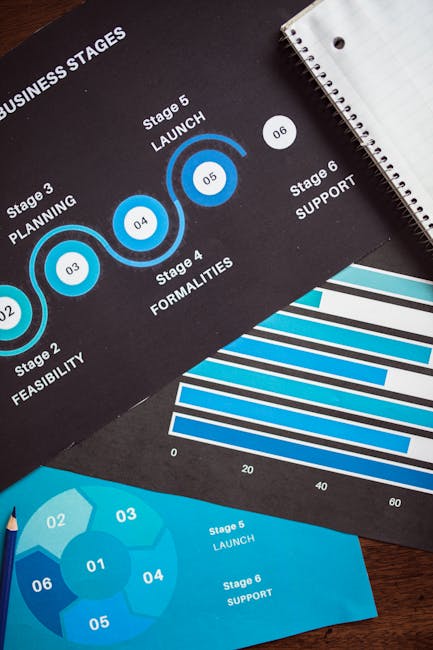Assessing the Regulatory Landscape and Defining Standards
This initial phase sets the stage for a robust compliance process. It combines rigorous evaluation with systematic documentation to ensure that every communication aligns with mandatory regulations.
Initial Evaluation
Begin by reviewing publications from respected agencies like the Centers for Medicare & Medicaid Services. Identify key mandates relevant to home testing kits. This step highlights the critical process of aligning industry guidelines with internal standards that answer the common concern: “How do we guarantee our messaging meets regulatory expectations?”
Documentation Mapping
Use platforms such as ForeSee Medical to analyze claim verbiage and disclaimers systematically. Drawing on practical examples from local hospitals, identify issues like mismatched treatment names that can undermine communication clarity.
Checklist Creation
Develop a verification checklist to cross-reference mandatory guidelines with current documents. This approach prevents misunderstandings in message meaning and safeguards against compliance risks that arise from discrepancies.

Establishing Standardized Workflow Guidelines
This stage standardizes internal processes and lays the groundwork for unified communication. It defines roles, consolidates approved information, and maps out the approval process clearly.
Protocol Development
Define roles and responsibilities for ensuring consistent communication across departments. Use real-world examples from compliance features discussed in journals like TechTarget, emphasizing how each department contributes to the overall workflow.
Central Repository Creation
Assemble a repository for all departmental materials. Maintaining access to verified information is essential to avoid discrepancies such as brand claim conflicts, ensuring every team member works from an approved source.
Approval Process Definition
Explicitly map the process flow with clear phases for revisions and essential checkpoints. This phase is crucial to guarantee that each piece of content passes through a proper review, minimizing risks associated with non-compliance.
Leveraging Advanced Tools for Consistency and Accuracy
Modern technology plays a key role in ensuring compliance. Integrating digital solutions makes monitoring claims and content review faster and more accurate.
Technology Integration
Adopt digital systems to monitor claims and streamline material review. Technologies used by Veeva MedTech, for example, deploy digital alerts and variance checks to significantly enhance workflow precision.
Automation Utilization
Map out automated processes by identifying input stages, necessary checks and defining the verification loop. Automation minimizes manual errors and reinforces the overall integrity of communications.
Learn more about the benefits of automation in regulated workflows
Automation offers continuous monitoring and rapid flagging of inconsistencies. It helps teams dedicate more time to creative tasks, while routine verification becomes a background process seamlessly integrated into daily operations.
This optimized process not only reduces turnaround time but also promotes data accuracy through consistent check routines and robust digital traceability.
Conducting Regular Audits and Ensuring Timely Updates
Regular audits are the backbone of maintaining compliance. They detect issues early and ensure that checklists and reference materials remain updated and reflective of current standards.
Audit Implementation
Integrate auditable phases into your workflow using efficient scanning methods similar to Conifer Health’s strategies. Such audits provide feedback loops to catch and fix errors like alt-text omissions early.
Checklist Management
Utilize tiered checklists to capture potential errors. Maintaining regularly updated logs post-audit sessions contributes to evolving a resilient and responsive compliance framework.

Training, Implementation, and Continuous Improvement
This final phase ensures that all stakeholders remain updated on evolving standards and technologies. By investing in training and establishing strict feedback loops, teams can adapt quickly to new challenges.
Educational Investment
Commit to regular training sessions for staff that delve deep into the rationale behind compliance standards. Modeled after successful hospital programs, this ongoing education ensures that every team member understands the importance of following these guidelines.
Feedback Enhancement
Create actionable checklists and structured feedback loops. Constant digital and human oversight strengthens process reliability and drives iterative improvements, ensuring long-term workflow efficiency.
Ongoing Evolution
Engage in workshops and foster close collaboration between teams. The continuous evolution of the workflow blueprint enables organizations to keep pace with industry changes and maintains a culture of adherence, precision, and improvement.
| Workflow Stage | Ideal Process | Common Pitfalls | Corrective Measures |
|---|---|---|---|
| Regulatory Assessment | Thorough review with cross-referenced guidelines | Mismatched treatment names | Standardized checklists |
| Workflow Standardization | Clear role definitions and central repositories | Brand claim discrepancies | Regular updates and audits |
| Technology Integration | Automated alerts and digital dashboards | Manual errors and oversight issues | Automated process mapping |
| Continuous Improvement | Structured feedback and regular training | Outdated practices | Ongoing workshops and update sessions |
| This table compares the ideal process stages with common pitfalls and corrective measures. For more workflows like this, search for "workflow standardization", "compliance audits", and "automated process improvements". | |||
- Manuscript Lock
- A term referring to the finalization of content where no further changes are allowed, ensuring consistency across final product copies.
- PI Reconciliation
- This involves aligning private investigator findings with approved content, a critical compliance factor in ensuring that all claims are thoroughly vetted.